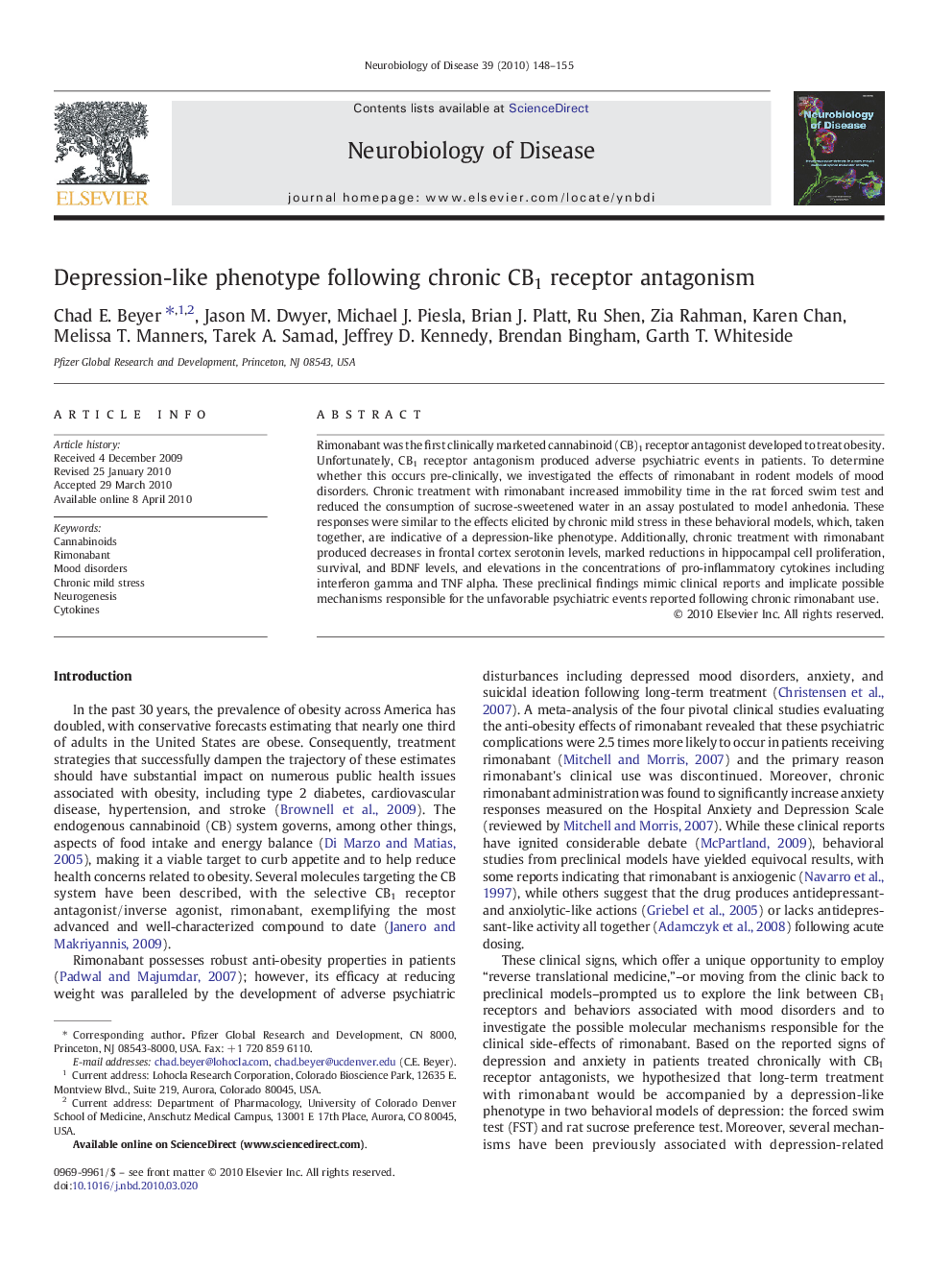| Article ID | Journal | Published Year | Pages | File Type |
|---|---|---|---|---|
| 3069896 | Neurobiology of Disease | 2010 | 8 Pages |
Rimonabant was the first clinically marketed cannabinoid (CB)1 receptor antagonist developed to treat obesity. Unfortunately, CB1 receptor antagonism produced adverse psychiatric events in patients. To determine whether this occurs pre-clinically, we investigated the effects of rimonabant in rodent models of mood disorders. Chronic treatment with rimonabant increased immobility time in the rat forced swim test and reduced the consumption of sucrose-sweetened water in an assay postulated to model anhedonia. These responses were similar to the effects elicited by chronic mild stress in these behavioral models, which, taken together, are indicative of a depression-like phenotype. Additionally, chronic treatment with rimonabant produced decreases in frontal cortex serotonin levels, marked reductions in hippocampal cell proliferation, survival, and BDNF levels, and elevations in the concentrations of pro-inflammatory cytokines including interferon gamma and TNF alpha. These preclinical findings mimic clinical reports and implicate possible mechanisms responsible for the unfavorable psychiatric events reported following chronic rimonabant use.
